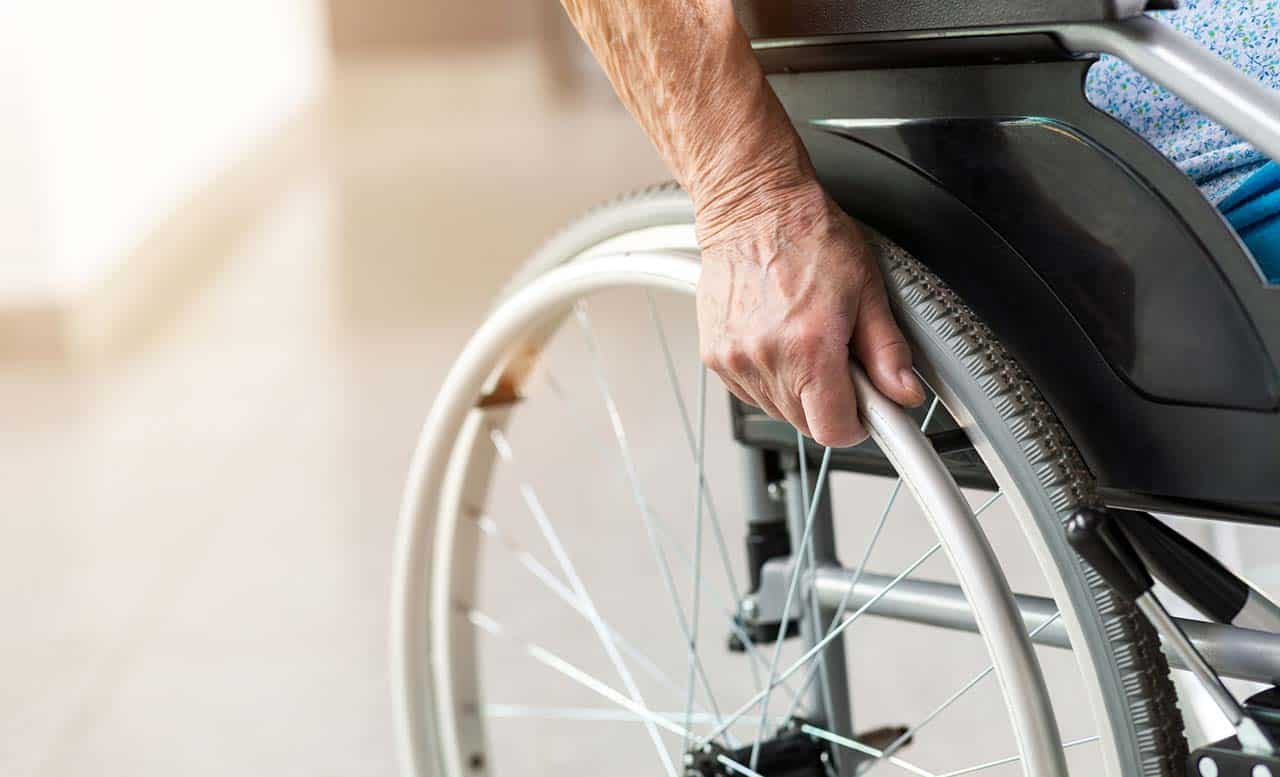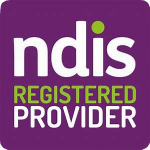Physical Disability Conditions Which Meets NDIS Eligibility
Having a physical disability can have a major impact on every aspect of an individual’s life. It can affect their ability to work, care for themselves, and even participate in social activities.
It’s therefore vitally important to obtain an understanding of any support that’s available through the National Disability Insurance Scheme (NDIS) and what criteria are required in order to be able to access this vital support.
Here at ANC, we’re dedicated to helping individuals with physical disabilities navigate these challenges and live life to the fullest. We’ve composed this blog to delve deeper into exactly what is covered under the NDIS, and the type of support services that can help individuals lead independent and fulfilling lives.
What is the NDIS
The National Disability Insurance Scheme (NDIS) is a government-funded scheme that assists an estimated 500,000 Australians with disabilities and their families each year.
The NDIS provides financial assistance for disability-related costs, such as equipment, therapy, and support services. The scheme is designed to help people with disabilities achieve their goals, participate in the community and live as independently as possible.
Eligibility for the NDIS is determined on a case-by-case basis, taking into account the individual’s needs and circumstances.
What Conditions Are Covered by NDIS?
The NDIS covers a range of disabilities, including physical, intellectual, sensory, neurological and psychological disabilities.
To be eligible for the scheme, participants must have a significant and permanent disability that limits their ability to take part in everyday activities.
The government divides NDIS eligibility into two lists; List A and List B.
Conditions that Fall under List A of the NDIS
Under List A, to qualify for the NDIS, a participant needs to meet one of the following disabilities or conditions:
- • Intellectual disability
- • Autism
- • Cerebral palsy
- • Genetic conditions which result in permanent and severe intellectual and physical impairments
- • Lyosomal storage disorders, such as Gaucher disease or Niemann-Pick disease
- • Mucopolysaccharidoses like Hurler syndrome or San Filipino syndrome
- • Patau syndrome
- • Rett syndrome
- • Spinal Muscular Atrophies
- • Spinal cord or brain injuries resulting in paraplegia
- • Permanent blindness
- • Permanent bilateral hearing loss
- • Deaf blindness
- • Amputation
Conditions that Fall under List B of the NDIS
Under List B, there are some conditions which may require further assessment, these include:
- • Some types of intellectual disabilities
- • Chromosomal abnormalities such as Down Syndrome
- • Neurological impairment such as Alzheimer’s, Dementia or Parkinson’s disease
- • Physical impairment like amputation
- • Speech or hearing impairments
- • A combination of the above
Conditions Resulting In Physical impairment
There are many different physical disabilities which can meet NDIS eligibility criteria, each with their own specific needs.
Common conditions resulting in physical impairment include:
| Category | Details | NDIS Support |
| Amputation | An amputation is considered to be a significant disability for the purposes of NDIS eligibility. This includes people who have had an amputation as a result of an injury or those who were born without a limb. | If you have had an amputation, you may be eligible for support and services such as physiotherapy, occupational therapy, mobility aids and modifications to your home or workplace. |
| Congenital absence of a limb or part thereof | This condition refers to a birth defect in which one or more limbs are missing or deformed. It can also include partial limitations of limbs, such as syndactyly (webbed fingers or toes). | People with congenital absence of a limb or part thereof often require assistance with activities of daily living, as well as assistive devices and equipment to help them live as independently as possible. The NDIS can provide support through aids and equipment, home modifications, personal care, and therapy. |
| Epidermolysis bullosa (EB) | EB is a rare genetic condition that causes the skin to be extremely fragile. People with EB can develop blisters and sores on their skin from minor trauma, such as rubbing or scratching. The blisters can lead to infection, scarring and a significantly reduced quality of life. | There is currently no cure for EB, but the NDIS can provide funding for treatments and supports to help people with the condition live as independently as possible. This can include funding for assistive technology, home modifications, and personal care services. |
| Harlequin type ichthyosis | Harlequin type ichthyosis is a rare, severe genetic condition that affects the skin. People with this condition have very dry, thickened and crusty skin. They may also have problems with their eyes, ears, nails and teeth. | The NDIS can provide funding for supports and services that people with Harlequin type ichthyosis need to live their lives. The NDIS will work with people with Harlequin type ichthyosis to develop an individualised plan that meets their needs and goals. |
| Juvenile arthritis / Stills Disease (excluding monocyclic/self-limited Adult Onset Stills disease) | Juvenile arthritis / Stills Disease is a chronic inflammatory condition that can cause pain, stiffness and swelling in joints and other tissues. Symptoms vary from person to person but can include joint pain and swelling, fever, rash, and fatigue. It usually starts before the age of 16 and can last for many years. | There is no cure for juvenile arthritis / Stills Disease, but treatment can help to reduce symptoms and improve quality of life. If you have juvenile arthritis / Stills Disease, you may be eligible for support through the NDIS to help you meet your needs and achieve your goals. |
| Rheumatoid arthritis | Rheumatoid arthritis is a chronic condition that causes inflammation in the joints. It can lead to joint damage and deformity, and can also cause fatigue, pain, and stiffness. In some cases, it can also affect other organs in the body. | If you have rheumatoid arthritis, you may be eligible for NDIS funding to cover the cost of services and supports that help you to manage your condition and participate in everyday activities. The NDIS can provide funding for assistive technology, therapists, and personal carers to help people with rheumatoid arthritis live independently. |
At ANC We Can Help
Here at ANC we understand the challenges that our clients with physical disabilities face every day. We are dedicated to helping our clients lead fulfilling and active lives, and we offer a wide range of services to meet their needs.
Some of the comprehensive support services we offer include:
| Service Type | Details |
| Travel Assistance | To maintain those all-important connections with your family and community |
| Accommodation | To provide you with a safe, tidy, comfortable and happy home environment |
| Household Tasks | To provide you with a clean and tidy home, allowing you to spend time doing the things you enjoy |
| Home Modifications | To make sure your home can meet your access and health requirements |
| Development Of Daily Living | To develop and build everyday life skills that will give you the confidence and skill to navigate your daily living |
| Therapeutic Supports | To travel to or accommodate a therapist to come over in your own trusted environment |
| Daily Task And Share Living Assistance | To develop and build the necessary skills to live independently |
| Life And Transition Assistance | To help strengthen your interactions with your support network, and assist with home living and your participation in the community |
| Management Of Funding | To help better manage your NDIS plan and get the most out of your NDIS budget |
| Personal Activities Assistance | To receive help with your everyday personal activities |
| Innovative Community | To help get you out there and experience the great outdoors with us |
| Access And Maintain Employment Physical Wellbeing | To help you get and maintain the job you want To provide you with a positive environment to stay active and improve your wellbeing |
At ANC we understand that every individual is unique and has their own specific needs. That’s why we take a personalised approach to care, working closely with each individual and their families to develop a customised care plan.
Our team of expert consultants have a wealth of experience and knowledge, and they will work with you to identify the best possible care options for your loved one.
We are committed to providing the highest quality of care, and we will work tirelessly to ensure that your loved one receives the support they need.
A physical disability can have a major impact on an individual’s life, affecting their ability to work, socialise and take care of themselves.
Fortunately, the NDIS provides support for people with physical disabilities, assisting them to live as independently as possible. To be eligible for the scheme, participants must have a significant and permanent disability that limits their ability to take part in everyday activities.
The NDIS helps to cover the cost of necessary equipment and services, such as physiotherapy, occupational therapy and personal care. It also provides funding for modified accommodation and transport, so that people with physical disabilities can live as normal a life as possible.
Here at ANC we are dedicated to helping individuals with physical disabilities navigate challenges and live life to the fullest. We offer a wide range of support services that provide vital support in every aspect of daily life.
We take a personalised approach to care that is specifically tailored to the needs of the individual and their family. Our team of expert consultants will work with you to develop a customised care plan, based on your specific circumstances. We will also provide ongoing support and advice, to ensure that your care plan is effective and continuously meeting your needs.
For any of your NDIS Support needs, why not contact us today?
Housing Is A Major Public Health Issue For Australians With Disability
Having a physical disability can have a major impact on every aspect of an individual’s life. It can affect their ability to work, care for themselves, and even participate in social activities. It’s therefore vitally important to obtain an understanding of any support that’s available through the National Disability Insurance Scheme (NDIS) and what criteria …


